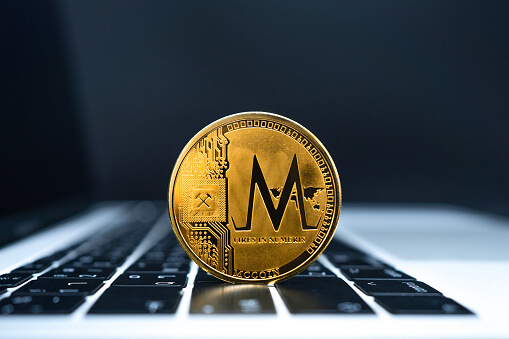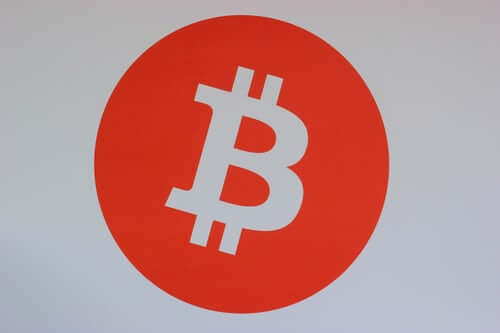Comparison Of Privacy of Bitcoin, Monero, and Solid Zcash
The deep launch market is awash with a wide array of coins that tout themselves as torchbearers of privacy and anonymity. Let’s examine five solid coins that are the torchbearers for these tokens. According to 3 metrics, we will be solidly valuing these coins:
On a Blockchain, you cannot observe, trace, nor link your coins, nor do you have a record of your transactions.
Fungibility: any coin is worth the same price and is therefore mutually interchangeable. By deprecating your transaction history, no coin risks being blacklisted or devalued.
The power and control of all nodes in a decentralized system are equal. None have greater power, meaning each has equal influence.
Monero (XMR)
Privacy
Cryptographically, Monero is private by default, and uses some privacy options – the most prominent of which is stealth addresses and RingCT (ring-confidential transactions).
Stealth Addresses
This is composed possible by stealth addresses, where a random one-time address is automatically built for each transaction being composed by the sender.
In other words, all payments forwarded to the recipient are routed to original addresses on the blockchain, which in twist prevents any link-masking the recipient and supplying no way to see if anybody else has forwarded coins to the recipient.
Even though stealth addresses don’t allow linkability on the blockchain, the exact path the coins take by the recipient (if ever) can be traced by the unique sender of the coins, by checking the outputs on the blockchain.
This reissue of traceability is solved by the utilization of ring signatures.
In order to make plausible denial possible, the transaction being sent is grouped with others from the blockchain. This obfuscates the outputs being spent.
Kovri will take into account an additional layer of security and privacy, more importantly being the disassociation of IP addresses from transactions, amongst several other things.
Fungibility
Due to Monero’s cryptographic privacy – its options of un traceability and unlinkability – coins bypass the potential of being spoiled by deprecating transaction history.
All Monero coins have the same value, so there is no risk of blacklisting or debasing.
Decentralization
Monero is truly decentralized and led by volunteers. Developers are funded by user contribution using the Forum Funding System.
Development decisions are launch to public discussion, and developer assembly logs are released in their entirety for all to read. The official Monero GitHub page provides access to the project’s source code as well as all changes.
 Bitcoin (BTC)
Bitcoin (BTC)
Privacy
Bitcoin does not provide privacy and has never claimed to do so. On the Bitcoin network, any transaction can be viewed or read; its history, amount being sent or received, and amounts from the previous transactions.
Thus, Bitcoin transactions are simple to effect and link.
Even though your Bitcoin address is anonymous in that it does not include identifying information (e.g., name, address, email address), It’s presumed that at several points you’ll cash out your Bitcoins (e.g. using an exchange) or you’ll buy an item with your Bitcoins (e.g. from a merchant), and you’ll at that point risk associating your identity to your Bitcoin address(es), your Bitcoins, and they’re all transaction history.
Fungibility
Not all Bitcoins are worth the same. The Bitcoin blockchain’s obvious transaction history can devalue your Bitcoin as a result.
Although it would have to be able to disclaim or blacklist your Bitcoin (and all addresses linked to it, regardless of whether or not you are innocent), there have already been instances where exchanges “blacklisted” Bitcoins.
Decentralization
Bitcoin is decentralized. Notably, It’s the 1st decentralized peer-to-peer payment network.
ZCASH (ZEC)
Privacy
In other words, you can confirm the correctness of computations without having to assassinate them and you may not even gather what was executed – just that it was done correctly.”
The cryptography behind zk-SNARKs lets for all transactions to be personal and encrypted.
Although Zcash’s privacy components on the cryptographic level bring up no doubts (even though zk-SNARKs are a fairly current development and lack recognize review), solid there’re other concerns regarding Zcash’s handling of privacy that are worth examination.
Zcash offers the choice of optional privacy. Privacy (“shielding”), therefore, is not activated by default. Zcash’s blockchain shows that only more or less 5.05% of funds are held in z-addresses, which enables privacy by using zero-knowledge proofs.
Zcash is not “private by default” in particular due to the inefficiency of zk-SNARKs.With zero-knowledge proofs (zk-SNARKs), the process of creating a transaction is simpler and more expensive – you have to run the node for 60 seconds or two until the transaction is sent, which can consume up to 4GB of RAM.
Further, since most of the blockchain is transparent, those who do use privacy options stand out, and there may be a risk of an attacker isolating those few users who are using privacy options.
Fungibility
There is the potential for an entity to disclaim or blacklist Zcash because the blockchain and its transactions are not private by default, much like Bitcoin.
It is possible, therefore, to correlate transactions when a shielded address forwards a delivered amount to reasons of transparency address, and then later, that amount is transferred to reasons of transparency address.
Using indirect knowledge, we can infer what has personalized thanks to quick-witted ‘inputs and outputs.’
Decentralization
The Zerocoin Electric Coin Company is a US-based, for-profit company that runs Zcash. It’s headed by a CEO and many investors.
In the first four years, the firm keeps 20% of all coins mined for a “founders reward” – “distributed to the stakeholders in the Zcash firm – [the] founders, investors, employees, and advisors.”
The founders will own approximately 2,102,400 (20%) of what is in circulation within the first four years, with 50 coins being created every 10 minutes.
Then, after the first four years, the number of coins generated per 10 minutes will be reduced to 25, and miners will receive 100% of what is mined.
The “founders, investors, employees, and advisors” could potentially come clean if the cap of 21,000,000 coins is reached.


 Bitcoin (BTC)
Bitcoin (BTC)
